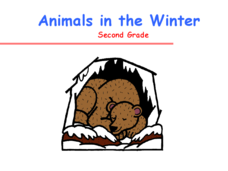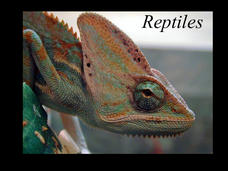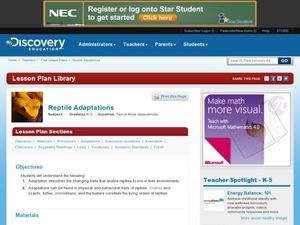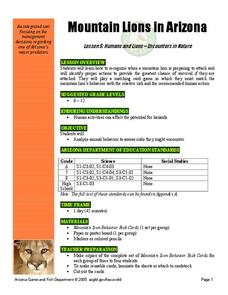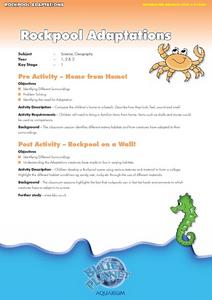Curated OER
Dining Out With Fishes and Birds of the Hudson
The class will make observations to determine how environment has shaped the way particular birds and fish eat. They will view a series of photographs, read two short articles, and then consider how food availability has determined how...
Curated OER
Dining Out With Fishes and Birds of the Hudson
While this lesson focuses on the birds and fish found on the Hudson River, it could be adapted for use in any classroom. Using a vocabulary list, learners explore the meaning of words like adaptation, habitat, barbel, and more. Then,...
Curated OER
World of the Pond
Field trip! The class will review what they know about organisms that dwell in freshwater ponds, then trek down to the old water hole to collect specimens for examination. This includes several web links, useful tips, and an excellent...
Curated OER
Academic Raceway: Animals
Race to the finish line with this interactive PowerPoint! Students must answer multiple choice questions about animals to get to the Winners' Circle. Tip: Have students play individually until they can get all of the questions correct.
Curated OER
Animals
Unifying themes in animal anatomy and physiology are displayed slide by slide. The main concepts involve the differentiation in cells and tissues, and details are given about fuel management, metabolism, and some other essential processes.
Curated OER
Animals in the Winter: Second Grade
Ever wonder what animals do in winter? If your 2nd graders do then they will enjoy this PowerPoint. Each slide begins with a questions and then provides the answer, it is a short presentation but the resource links at the bottom make it...
Biology Junction
Reptiles
When crocodiles close their mouths, you still see their teeth, but when alligators close their mouths, their teeth are hidden. Learn more about these reptiles and their many evolutionary cousins in a fact-filled presentation. It...
K12 Reader
Hide and Seek
Why do certain animals look the way they do? It could be because they have developed camouflage. Kids can read up on camouflage and mimicry and then respond to five questions related to the content of the passage.
DePaul University
The Working Tools of Insects
The animal kingdom is full of interesting organisms that have unique ways of surviving. Children read about different insects that have special tools for building homes and protecting themselves. When finished, learners identify the main...
Curated OER
The right place to live
How do various plants survive in different environments? They adapt! Kids determine which plant traits make them perfect for their specific environment. They consider three plants and can even complete a plant experiment. Note: Intended...
Curated OER
Reptile Adaptations
Students research animal adaptations. In this adaptations lesson, students research the physical and behavioral adaptations of animals. Students create a diagram of their animal labeling it's adaptations.
Curated OER
Blubber Gloves
The ways that animals adapt to their environments is quite remarkable. In this life science lesson plan, fifth graders take a look at some of the ways that aquatic animals that live in Arctic or Antarctic waters survive. They perform an...
Curated OER
Adaptation Worksheet
Adaptation or acclimation? Young ecologists determine which is being exemplified in twenty questions. When teaching about adaptations, make sure to talk about acclimation, a short-term learned response to a change in the surroundings....
Curated OER
Mountain Lions in Arizona Lesson 5: Humans and Lions - Encounters in Nature
Fledgling felinologists are taught how to recognize when a mountain lion is preparing to attack. They identify proper actions to provide the greatest chance of survival if they are attacked. Learners play a matching card game in which...
Curated OER
Stella the Swan
Students study the similarities and differences between ducks, geese, and swans. They tell the story about how water fowl adapt to life in water using props.
Curated OER
Who Lives with Mallard?
Students color a picture of the habitat featuring mallard and other creatures, some of whom might be camouflaged or half-hidden. They discuss other forms of animal adaptation.
Curated OER
Survival Strategies and Adaptation in Insects
Third graders investigate insects and their adaptations that help them survive. In this survival strategies lesson, 3rd graders view photographs of insects and discuss the adaptations that each one uses to survive, including camouflage...
Curated OER
Rockpool Adaptations
In this rockpool adaptations worksheet, young scholars study a rockpool habitat and compare it to their own habitat. Students use their senses to describe a rockpool habitat. They bring in items from home and items from a beach to make...
Curated OER
Adaptation and Diversity on Sheffield Island
Written for an exploration of shoreline ecosystems on Sheffield Island, this gives ecology or marine biology buffs a hands-on experience. Using GPS or visual triangulation techniques, they lay transect lines on a high and a low energy...
Curated OER
Sheffield Island Adaptation Activity
You don't have to visit The Maritime Aquarium to use this plan, but you would need to find a location where a variety of bird species live, re-write the activity worksheet to incorporate the local species, and purchase field guides for...
Curated OER
All Ears for Adaptation
Young scholars discuss different characteristics that enable animals to adapt to their environments. They work in pairs with one partner standing about one foot behind the other partner and cup their hands around their ears with palms...
Curated OER
Wildlife
The centerpiece of this lesson plan is a predator-prey simulation in which colored paperclips represent different species of animals camouflaged against a colored background. Relevant follow-up questions are provided. The activity is...
Curated OER
Adaptation
The camel, polar bear, penguin, golden eagle, shark, and ostrich are displayed as examples of animal that have adapted to their particular environments. Each slide has a picture of the animal and a bullet-style list of the animal's...
Curated OER
Adaptations
Cacti have special adaptations for living in desert heat and dryness. Polar bears have adaptations that allow them to withstand icy conditions. Humans adapt to different conditions by wearing appropriate clothing or building homes...







